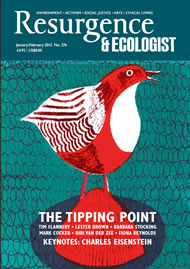The modern world might seem to be the triumph of Western imperialism’s so-called civilising mission. The political and economic ideas the imperialists propagated dominate, although recently the economics at least have been challenged by events. But in his new book, Pankaj Mishra describes the challenges to those ideas that came from Asia in the days of the Western empires, challenges that still influence those who have not bought the Western package in its entirety – the Chinese Communists, the Muslim Brotherhood and al-Qaeda, for example. He suggests that those Asian challenges to the concept of development are relevant today.
The critics of imperialism Mishra discusses are Asians who in the late 19th and early 20th centuries were, in his words, “conscious of belonging to civilisations that had not so long ago been great and self-contained but were now growing infirm against a successful and vigorous West”. They represented different cultures spread across the continent from Turkey in the West to Japan and China in the East, and the ideologies they propagated were varied. They included Pan-Islamism and Islamic utopia, neo-Hinduism, the revival of Confucianism, and Pan-Asianism too.
The ideologues didn’t necessarily reject Western culture root and branch. Japanese ideologues decided to beat the Westerners at their own game by adopting imperialism. In his prologue, Mishra describes Asia’s glee when in 1904 the small Japanese fleet routed the Russian navy in the Tsushima Strait. Mishra also points out that the Western concepts of the nation-state, nationalism and patriotism have been widely adopted by those he describes as “native elites”.
These Asian thinkers often felt ashamed that their own cultures seemed unable to face the onslaught of Westernism. Jamal al-Din al-Afghani, a renowned 19th-century Islamic thinker and activist, occupies many pages of Mishra’s book. Summing up the condition of Muslims, al-Afghani said: “Oh! Oh! What an immense tragedy! What a great catastrophe has fallen [on us]. What a situation has arisen.” Al-Afghani blamed the catastrophe on Muslims themselves, telling them: “God does not change the condition of a people until they change themselves.”
The renowned Indian philosopher Aurobindo warned that his country was “in danger of losing its soul by an insensate surrender to the aberrations of European materialism”. It was the threat to their cultures that Western materialism posed that most alarmed many of its Asian critics. Among the examples Mishra quotes are Liang Qichao, whom he describes as “perhaps China’s foremost modern intellectual”, and the Indian writer and poet, artist and musician Rabindranath Tagore. Tagore saw Western civilisation as “scientific rather than human”, and said it was “overrunning the whole world, like some prolific weed […] It is powerful because it concentrates all its forces upon one purpose, like a millionaire acquiring money at the cost of his soul.” Liang criticised the European tendency to regard life “solely as material development” and asked: “How can the Confucian ideal of equilibrium be applied so that every man may live a balanced life?”
Mishra’s book is a comprehensive and much-needed reminder of the resistance among Asian intellectuals to the overpowering materialism of the West. The early Islamic opposition to Western materialism reveals important causes of Muslim hostility to that culture’s manifestation today. Those causes should make us wary of facile explanations of that enmity which effectively lumps all Muslims together as the enemy.
Mishra also points out that the Asian resistance to the imperialists’ materialism has an economic lesson for us. He warns, “Much of the ‘emerging world’ now stands to repeat, on an ominously larger scale, the West’s own tortured and often tragic experience of modern development … The hope that fuels the pursuit of endless economic growth – that billions of consumers in India and China will one day enjoy the lifestyles of Europeans and Americans – is as absurd and dangerous a fantasy as anything dreamt up by al-Qaeda.” Yet Mishra is surely right in saying that for all the evidence of the danger of pursuing the dream of endless economic growth, for all the wisdom of Asia, “no convincingly universalist response exists today to Western ideas of politics and economy.”






